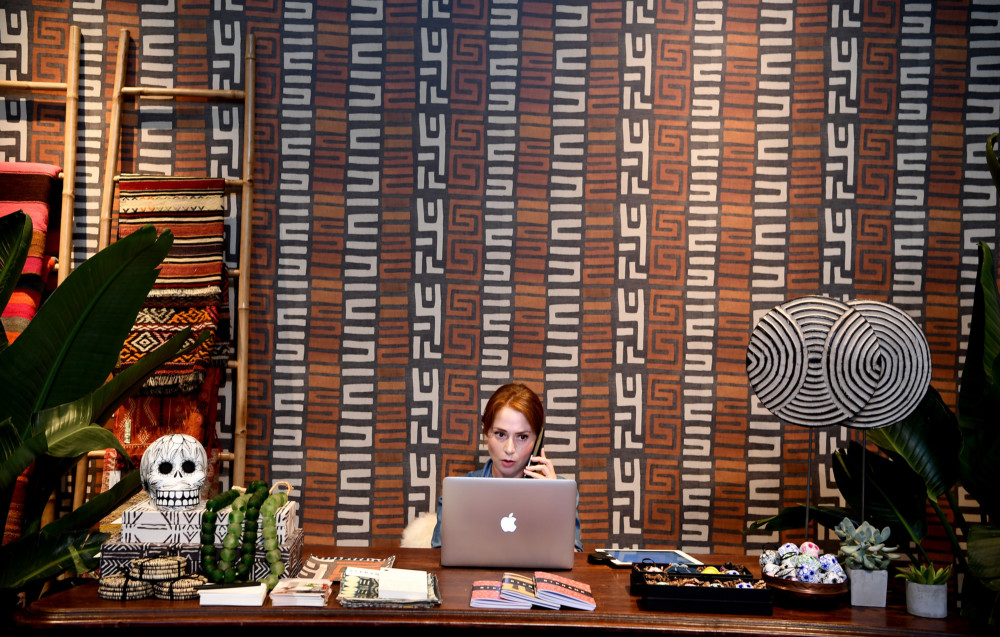By Shan Li
Los Angeles Times
WWR Article Summary (tl;dr) In recent years, shopping centers have realized that pop-up stores are a way to gin up excitement among shoppers by making under-the-radar brands accessible.
LOS ANGELES
When Platform opened this year just outside Los Angeles, the upscale shopping center set aside four stores for a specific class of highly sought-after retailers.
Platform, which also contains restaurants and office space, wasn’t looking for a particular brand or merchant. Instead, it went hunting for retailers happy with a brief stay, some as short as three days.
“So much stuff is accessible online,” said David Fishbein, a principal at Runyon Group, the real estate firm behind Platform. “To give people experiences and content to do in person they can’t find anywhere else is really appealing.”
Pop-up stores, once seen as only a step up from a vacant storefront, have become a key strategy for some malls.
These kinds of stores have been around for decades, sliding into empty storefronts left vacant by more desirable long-term tenants. Come October, temporary stores peddling costumes open seemingly overnight, while toy stores and Christmas tree lots spring up in November.
But in recent years, shopping centers have realized that pop-up stores are a way to gin up excitement among shoppers by making under-the-radar brands accessible and bringing in startups linked to celebrities.
With online sales forecasted to grow as much as 10 percent this holiday season to $117 billion, brick-and-mortar stores are upping their game to compete.
“The idea for owners is ‘What can I do to generate traffic and buzz?'” said Mitchell Hernandez, a senior associate at real estate giant CBRE.
“The mantra a few years ago was having 100 percent occupancy,” Hernandez added. Now, some think that “a better idea is to have 90 percent occupancy and have 10 percent devoted to rotating pop-up shops.”
At Platform, Fishbein said carving out permanent space for an ever-changing roster of pop-ups was part of the plans from the very start. With the retail industry evolving faster, he said, landlords have to more quickly adapt to changing consumer tastes.
“We want to experiment and test different ideas,” Fishbein said. “If you have everything leased to tenants for five to 10 years, you don’t have a lot of opportunities as a landlord to create change.”
Instead of signing long leases, these brands stay for as little as a few days up to a year, Fishbein said. The current lineup includes Floral Art, a flower shop, and the Lapis Press, which sells art.
Fishbein said some brands are testing the waters before opening a permanent brick-and-mortar store, while others view pop-ups as a marketing tool and way to broaden their exposure.
For St. Frank, a luxury home decor retailer based in San Francisco, it’s a little bit of both. St. Frank, which sells textiles sourced from around the world, started as an e-commerce merchant in 2013. In the past year, the company opened up two brick-and-mortar stores in San Francisco and Silicon Valley.
But St. Frank never had a pop-up before opening at Platform in October. St. Frank intends to use that store to test the Southern California market and experiment with building out a small space on a slim budget, founder and CEO Christina Bryant said. It’s also a way to see if pop-ups could be a profitable component to St. Frank’s business model.
Platform only takes a percentage of sales, instead of charging rent, Bryant said. That lowers the risk for a young company. Bryant said she’s also looking at pop-up and permanent store locations in New York.
“In larger cities like LA, it’s more expensive for a young brand,” she said. “So being able to test in a small way to see if rent and store economics can work” is invaluable.
Poketo, a Los Angeles-based art and design store, also has a spot in Platform. The retailer, which has popped up previously in Nordstrom and Urban Outfitters’ concept store called Space Ninety 8, already has two stores, one in downtown LA and the other in the Line hotel in Koreatown.
Before committing to a permanent store, however, Poketo wanted to test the market beyond its base, said co-founder Ted Vadakan.
Vadakan said pop-ups can be a boon for both retailers and malls, but only if it’s a right match between the two. Selecting the wrong brand, he said, can erode a mall’s credibility.
“You start to not to trust the curation or development or the quality,” he said. “Some shopping centers end up bringing in whatever and whoever.”














































































































































































































































































































































































